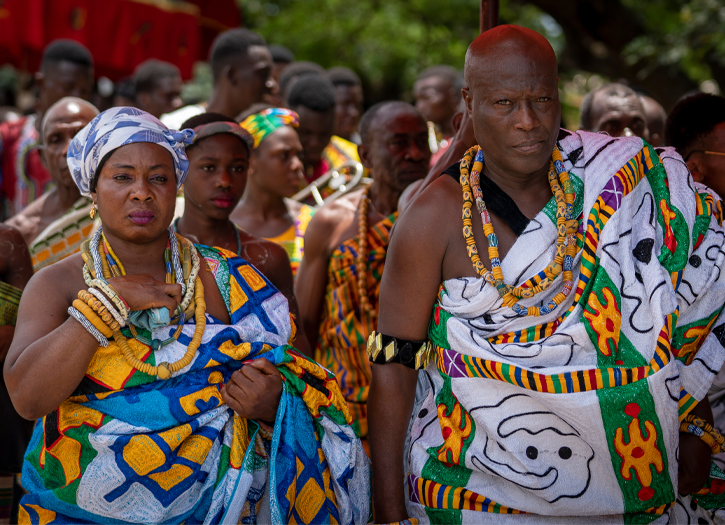Queen mothers (also Queenmothers) are leaders and women of power in Africa. Generally, queen mothers play an important role in local government and “wield social power and influence.” The amount of power they currently hold has been diminished since pre-colonial times.
Queen mothers are an important part of the Akan tradition which is based on matrilineal descent. They are found in such groupings as the Ashanti Kingdom, which is part of the Akan ethnic group. In areas of Ghana where the Akan culture is prominent, each town has a chief and a queen mother who rule alongside the modern political system. Queen mothers have also been recorded in the tradition of the Pabir in northern Nigeria, as part of the Benin culture in Nigeria’s south, and in the Krobo area. The Yoruba people of Nigeria, Benin and Togo also have a number of women that make use of the honorific “titled mother of the king”.
In other parts of Africa, such as in Uganda, the term queen mother is also used to describe either the mothers of reigning monarchs or women who hold power in their own right. As of the start of the 21st century, queen mothers are seeing a resurgence in power and influence in Africa. A great many of them are members of the African Queens and Women Cultural Leaders Network, a voluntary organization.
The title of queen mother is an English compound word used to collectively describe women in traditional African leadership roles. The Akan peoples use the term ohemmaa, which means “female ruler”.In the Ga tradition, they are called manye or “community mother”. In the Pabir tradition, they are known as maigira, a word that means “female monarch.” In the Benin tradition, queen mothers are known as iyobas. In the traditions of Yorubaland, a woman who is ritually invested with the title is known as an iya oba or “titled mother of the king”.The office of the queen mother is also known as the “stool”. In Ghana, queen mothers are selected from the royal family of each town and village.
It is the head of the royal family and the elders who choose both the chief and the queen mother, a pair that might be related to one another. The royal families are made up of the first settlers of an area.Queen mothers today continue to adapt to the changing world and the position has “remained vital.” They participate in business and recognize the contributions of midwives. Queen mothers have helped support breast cancer awareness in Ghana. In order to raise awareness of their role in Africa, four queen mothers from Ghana toured the United States.Some queen mothers have said that their authority is not as respected as much as the authority of the male chiefs.
While many queen mothers and other women in traditional roles have faced obstacles for creating lasting change for women, they continue to organize in order to be represented “in formal political processes.”







Add Comment